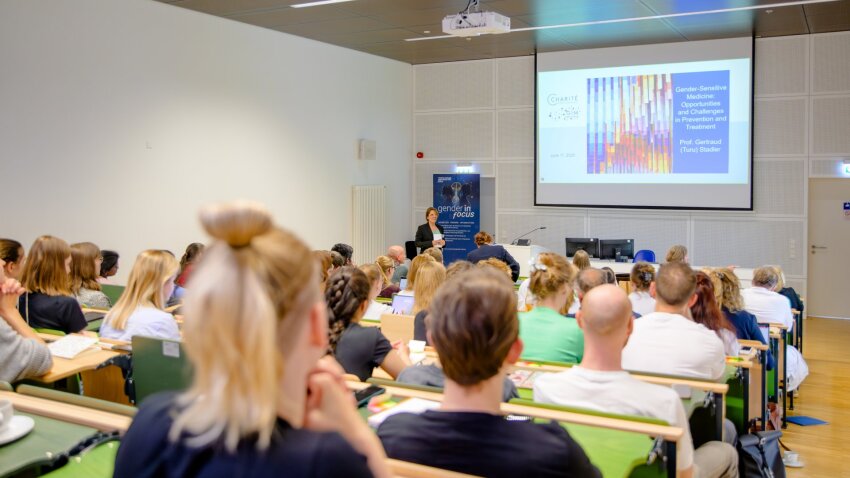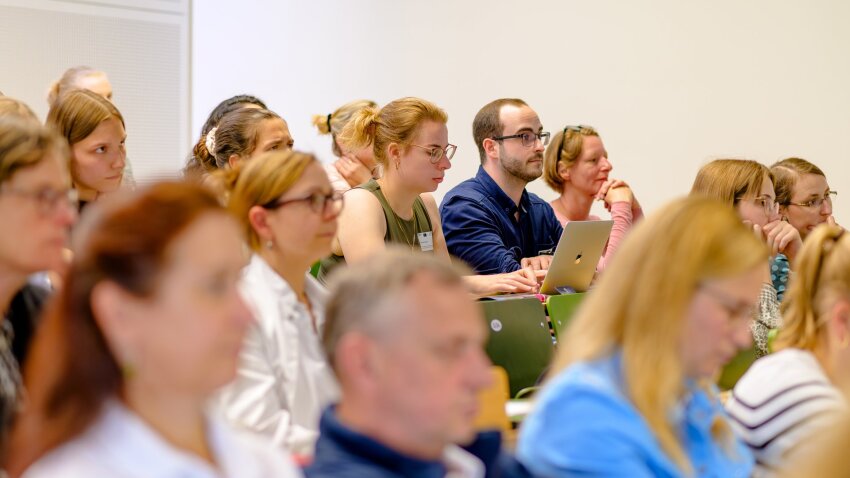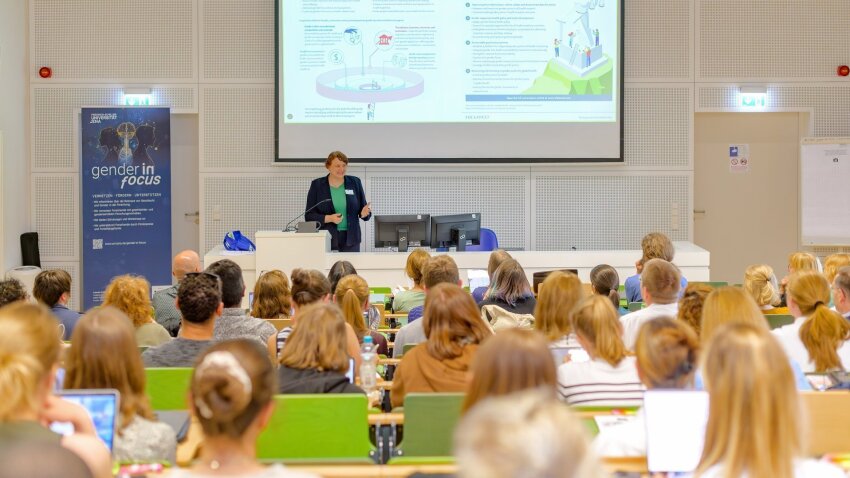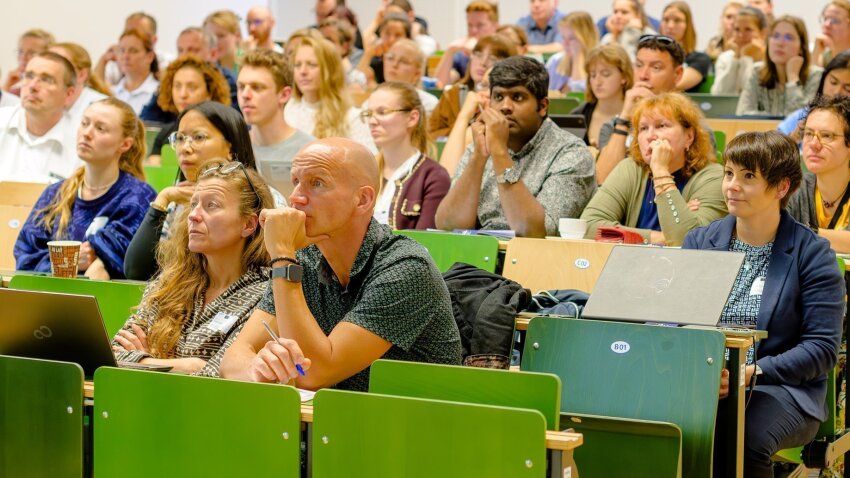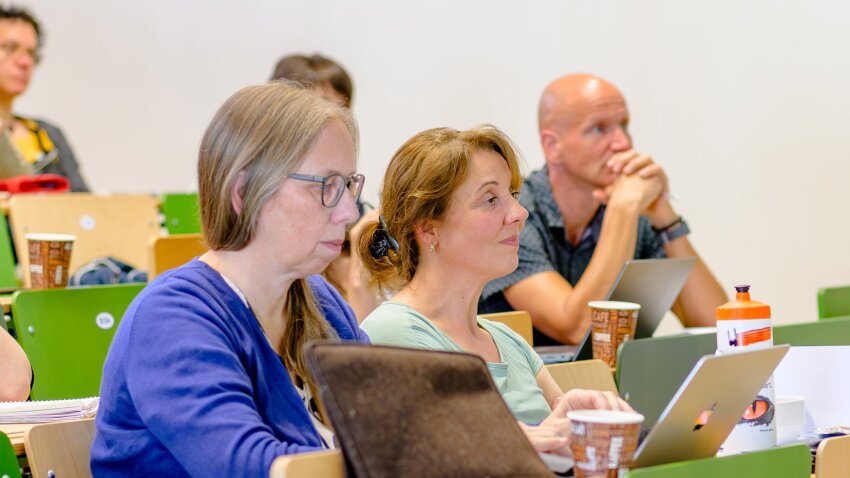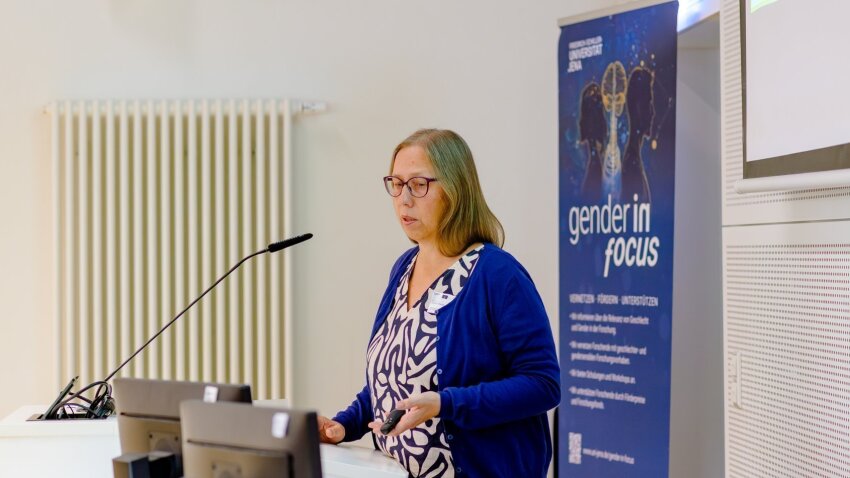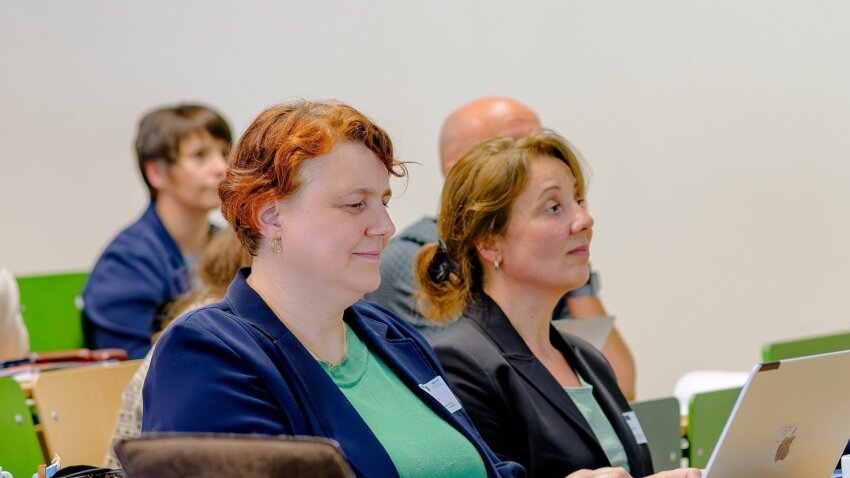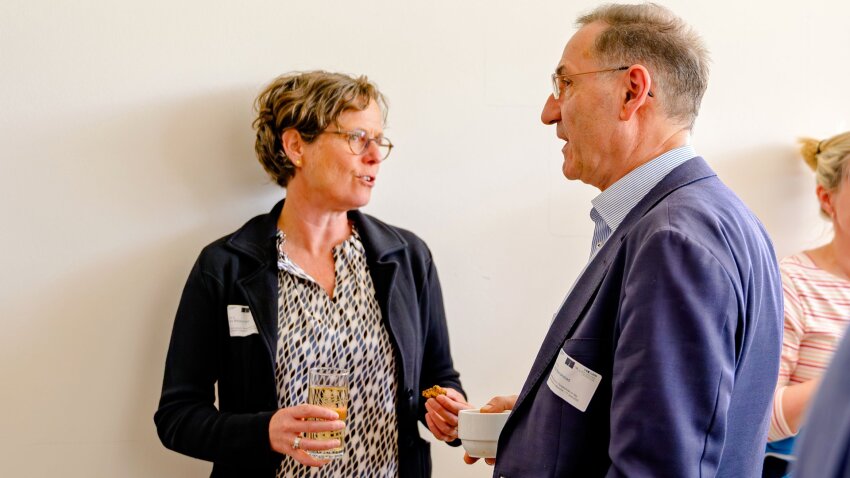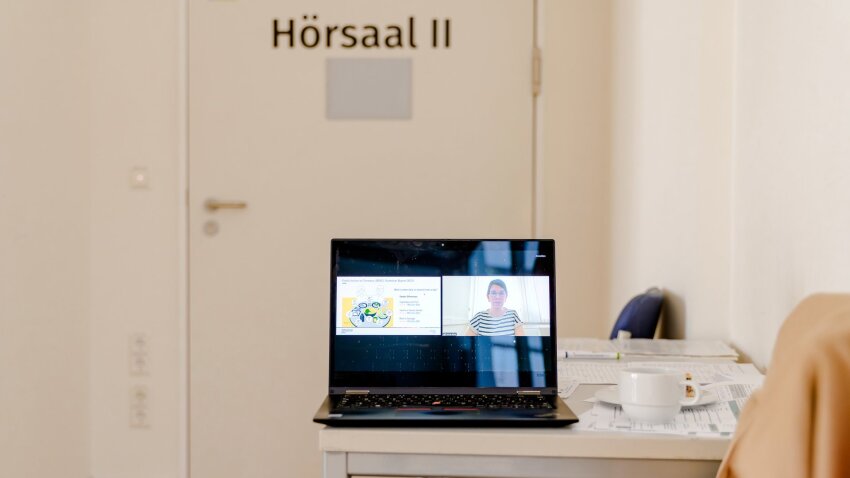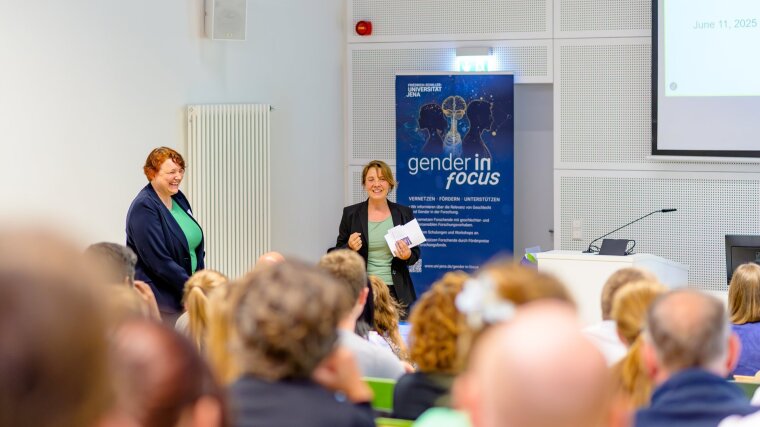
- Life
Published:
On 11 June 2025, the symposium "Perspectives on Sex and Gender" took place at Jena University Hospital (JUH) and gathered clinicians and scientists from many different medical fields and colleagues from non-university institutes. The event was organised by PD Dr Ivonne Löffler, who represents a gender-sensitive research approach as a research group leader at the UKJ's Nephrology Research Laboratory at the Internal Medicine Clinic. The Jena School of Molecular MedicineExternal link and the BMFTR-funded project "Gender in Focus" supported the symposium with funds and personnel.
The symposium was opened with a welcoming address by the Vice President for University Community and Engagement at the University of Jena, Prof Dr Bärbel Kracke. In the first lecture of the day, Prof Dr Gertrud Stadler, Professor of Gender-Sensitive Prevention Research at Charité University Medicine and Head of the Institute Gender in MedicineExternal link (GiM) at the Virchow Clinic in Berlin, began by discussing the opportunities and challenges of sex and gender-sensitive medicine in the subject areas of prevention and treatment.
Prof Dr Sylvia Stracke then emphasised the importance of integrating sex and gender aspects in Medicine research in her presentation, particularly due to the gaps that still exist in health data. As an example of how this desideratum could be overcome, she presented the work of the InkE - Inclusive Excellence in MedicineExternal link project at the University Medicine Greifswald, in which she is involved as network coordinator and head of the Department of Nephrology, Dialysis and Hypertensive Diseases. The "InkE" project, like the "Gender in Focus" project at the University of Jena, is funded by the Federal Ministry of Research, Technology and Space as part of the "Gender Aspects in Focus" funding guideline.
Prof Dr Anna Kipp, holder of the Chair of Molecular Nutritional Physiology and Director of the Institute of Nutritional Sciences at the University of Jena, explained in her presentation the sex-specific effects with regard to the enrichment or reduction of certain trace elements such as copper, iron, selenium and zinc when meat is omitted from the diet.
In the field of epigenetics, which deals with the cellular processes that influence the activity of genes, Prof Dr Aria Baniahmad was then able to show the serious differences that exist in both the adaptive and innate immune systems of women and men. The deputy head of the Institute of Human Genetics and head of the Molecular Genetics Research Group at Jena University Hospital explained in particular the variety of factors for sex and gender-related epigenetic differences, ranging from sex hormones and the composition of chromosomes to ageing processes and environmental influences.
Prof Dr Oliver Werz, holder of the Chair of Pharmaceutical/Medicinal Chemistry at the University of Jena and messenger for the "Gender in Focus" project, has outstanding expertise in research into sex-specific inflammatory phenomena. Using the example of leukotrienes, whose metabolism is associated with allergic or inflammatory reactions in the body, and their influence on bronchial asthma, Oliver Werz was able to convincingly demonstrate the extent to which there is a gender dimorphism in the effect of anti-leukotrienes.
From left to right: GiF-Messenger Ivonne Löffler, Staff Memberss Falk Bornmüller and Jana George at the JSMM-Symposium "Perspectives on Sex and Gender in Medicine"
Image: Inka RodigastAs the last speaker of the conference, PD Dr Ivonne Löffler, gave a compact overview of her many years of research in the field of diabetic nephropathy in the concluding lecture. Starting with the presentation of the special role played by endothelial collagen VIII in the development of kidney disease in connection with type 1 diabetes, Ivonne Löffler discussed the "sex paradox", which first emerged in relation to type 2 diabetes and revealed a sex-related dependency of the protective effect of collagen VIII. As with all the presentations at this symposium, the enormous importance of a sex and gender-sensitive orientation of research in Medicine was tangible.
